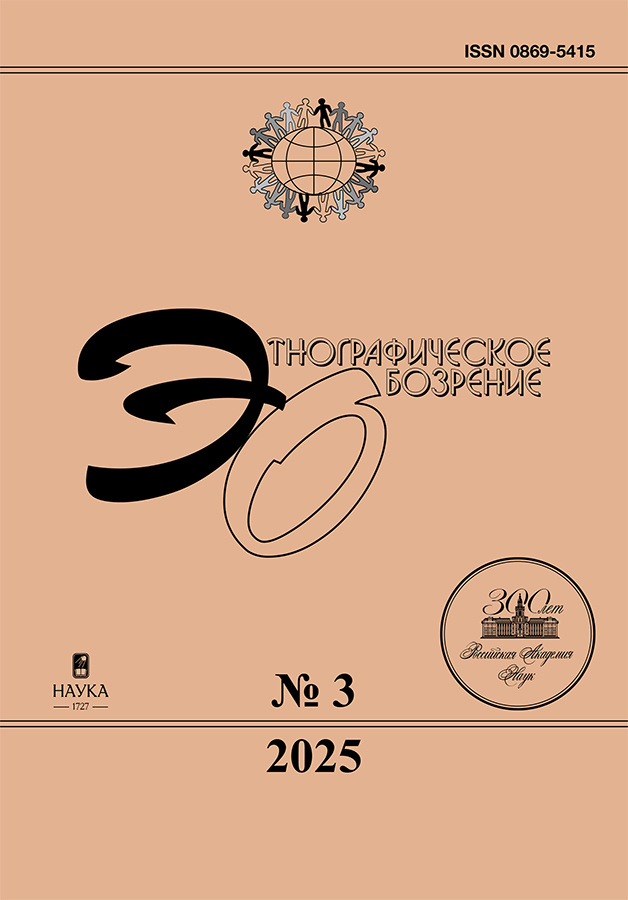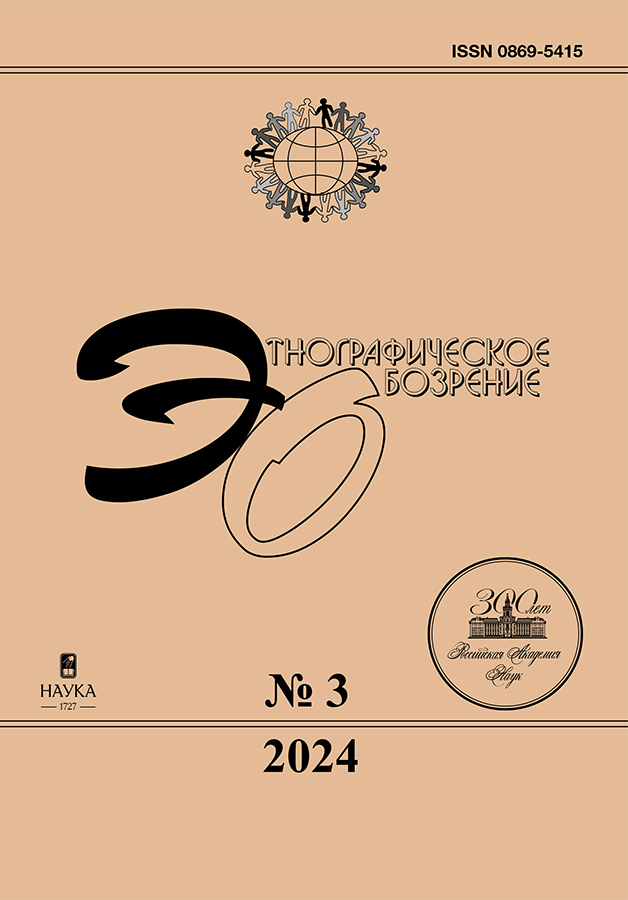The role of λαϊκή αγορά (“street market”) in modern greek towns
- Authors: Sidneva S.A.1
-
Affiliations:
- Lomonosov Moscow State University
- Issue: No 3 (2024)
- Pages: 13-29
- Section: Special theme of the issue: Humans buying and selling: anthropology of trade (people, goods, structures, relationships)
- URL: https://permmedjournal.ru/0869-5415/article/view/672488
- DOI: https://doi.org/10.31857/S0869541524030027
- EDN: https://elibrary.ru/BRURYE
- ID: 672488
Cite item
Abstract
The article discusses the phenomenon of “people’s market” in contemporary Greek cities and towns. Historically, the market in Greece has played an important role not only as a place of trade, but also as a concentration of social and political life. The word αγορά, derived from the ancient Greek verb ἀγορεύω (“to speak publicly”), meant not only a market square but also people’s assembly in Ancient Greece. In modern society, the “people’s market” has almost lost its political function. From a commercial point of view, it should have been replaced by mega-stores, supermarkets, and online commerce, especially during the covid pandemic. However, today in Greece this phenomenon does not lose its relevance and even acquires new functions. In a large city, the “people’s market” is embedded in a new ideology of environmental friendliness of the goods for sale and in the discourse related to the identity of the Modern Greek. In addition, a street market in a city retains the archaic functions of socializing residents, exchanging information, and being a barometer of political sentiment. For rural residents, λαϊκή αγορά is an opportunity to sell an agricultural product and exchange information and contact with the urban environment. Internationally, outside Greece, the Greek folk market is sometimes positioned as a distinct brand.
Keywords
Full Text
About the authors
Svetlana A. Sidneva
Lomonosov Moscow State University
Author for correspondence.
Email: lucia80@mail.ru
ORCID iD: 0000-0002-2937-5434
к. филол. н., доцент кафедры итальянского языка факультета иностранных языков и регионоведения
Russian Federation, GSP-1, Leninskie Gory, Moscow, 119991References
- Bell, D., and G. Valentine. 1997. Consuming Geographies: We Are Where We Eat. London: Routledge.
- Eleysiniοti, A., and A. Khatzhgiannidoy. 2018. Ypaίthrio empόrio sto ellhnikό plaίsio: chοros, drοntes kai drasthriόthtes stis laϊkes agores Κholargoύ kai Ptolemaΐdas [Outdoor Trade in the Greek Context: Space, Actors and Activities at the Popular Markets of Holargos and Ptolemaida]. Thessaloniki: Aristoteleio Panepistimio Thessalonikis.
- Kontsa, K. 2007. Topografisies skheseon sti laiki agora: mia ethnografiki periptosi [Topographies of Relationships in the Popular Market: An Ethnographic Case]. Volos: Panepistimio Thessalias, Tmima I.A.K.A.
- Konstantinidou, M. 1996. Byzantinoi dromoi – paradosiakes poles [Byzantine Roads – Traditional Towns]. Athens: Medusa-Sellas Publishing House.
- Kousas, G.H. 2013. O kosmos tis laikis agoras: pros mia koinimiki anagnosi ton leitoyrgion kai ton proetakseon ton syngronon ypaithrion agoron [The World of the Street Market: Towards a Communal Reading of the Functions and Preparations of Modern Outdoor Markets]. Laografia Deltion 42: 505–558.
- Loukatos, D. 1963. Synkhrona laografika [The Modern Folklore]. Athens: Labyrithos.
- Meraklis, M.G. 2004. Elliniki laografia. Koinoniki synkrotisi – Ithi kai Ethima – Laiki tekhni [Greek folklore: Social Constitution-Traditions and Customs-Folk Art]. Athens: Oddiseas.
- Skrzhinskaia, M.V. 2000. Budni i prazdniki Ol’vii v VI–I vv. do n. e. [Weekdays and Holidays of Olbia in the 6th-1st Centuries BC]. St. Petersburg: Aleteiia.
- Varvounis, M.G. 2004. Meletimata Ellinikis laografias. Laografika, Theoritika, Methodologika kai Poikilia [Studies of Greek Folklore: Folklore, Theory, Methodology and Variety]. Ksanthi: Spanidis.
- Vozikas, G. 2006. To panigyri tis Agias Marinas stin Ilioupoli. I sinkhroni morfi enos politistikou thenomenou ston elliniko astiko khoro kai koinoniko-oikonomiko tou plaisio [The Festival of Agia Marina in Ilioupoli: The Modern Form of a Cultural Phenomenon in the Greek Urban Space and Its Socio-Economic Context]. Athens: Elliniki Laografiki Etaireia.
Supplementary files











